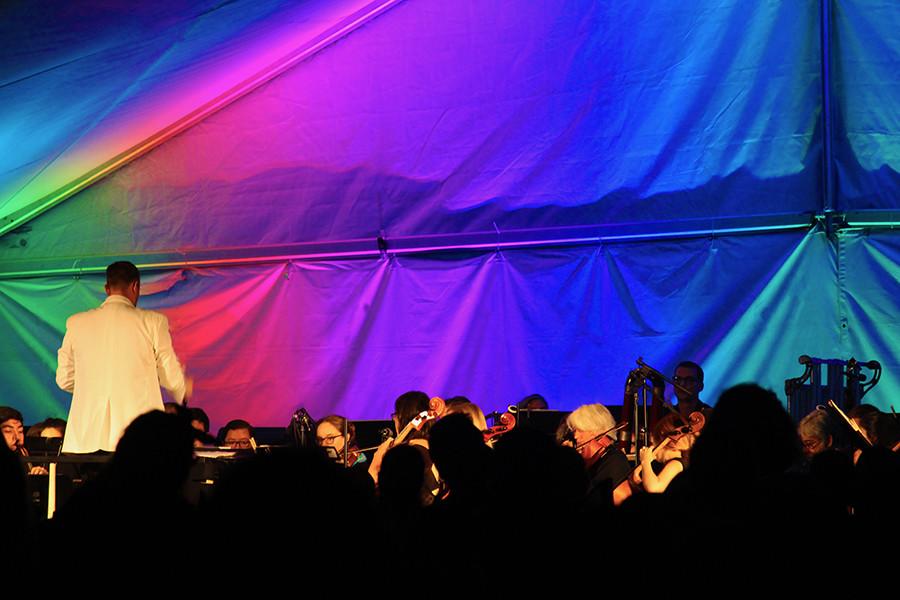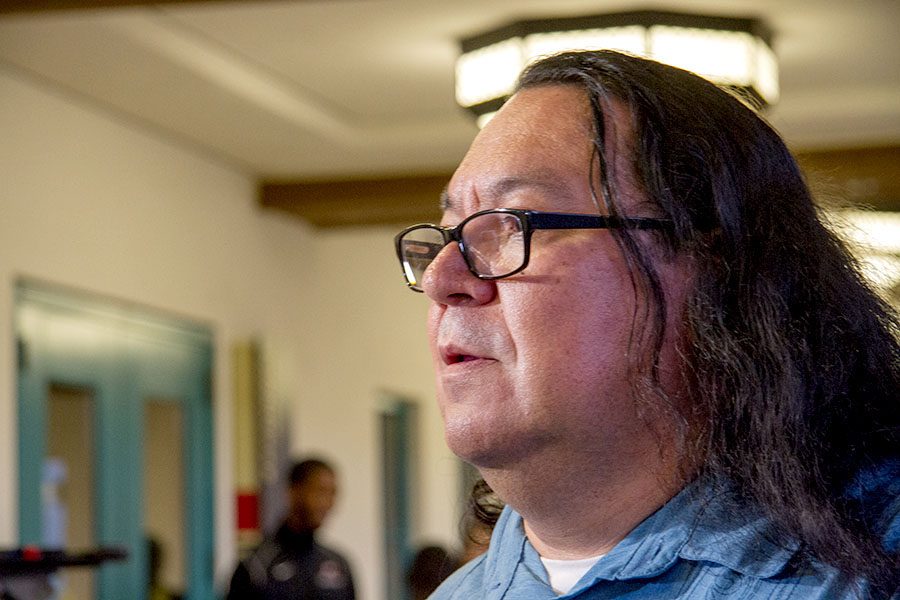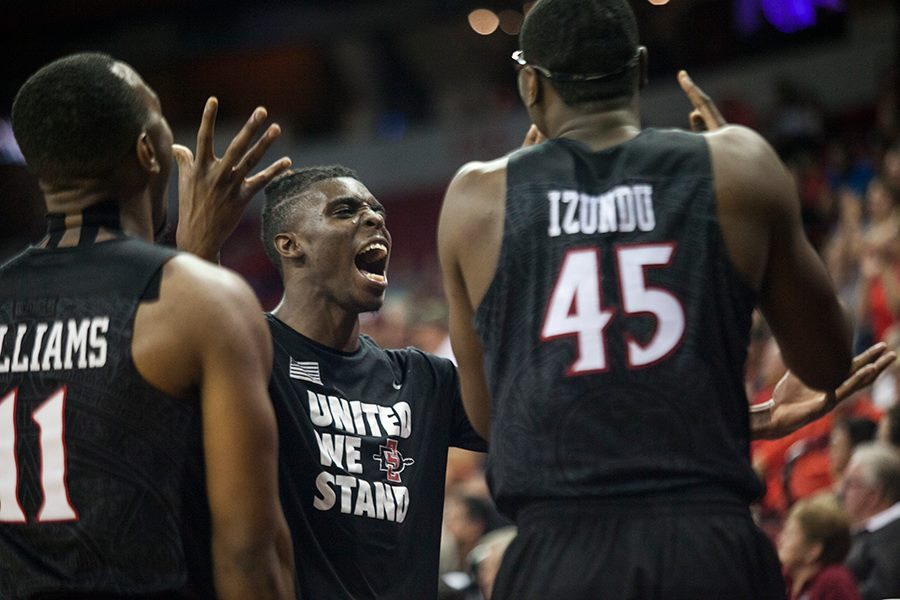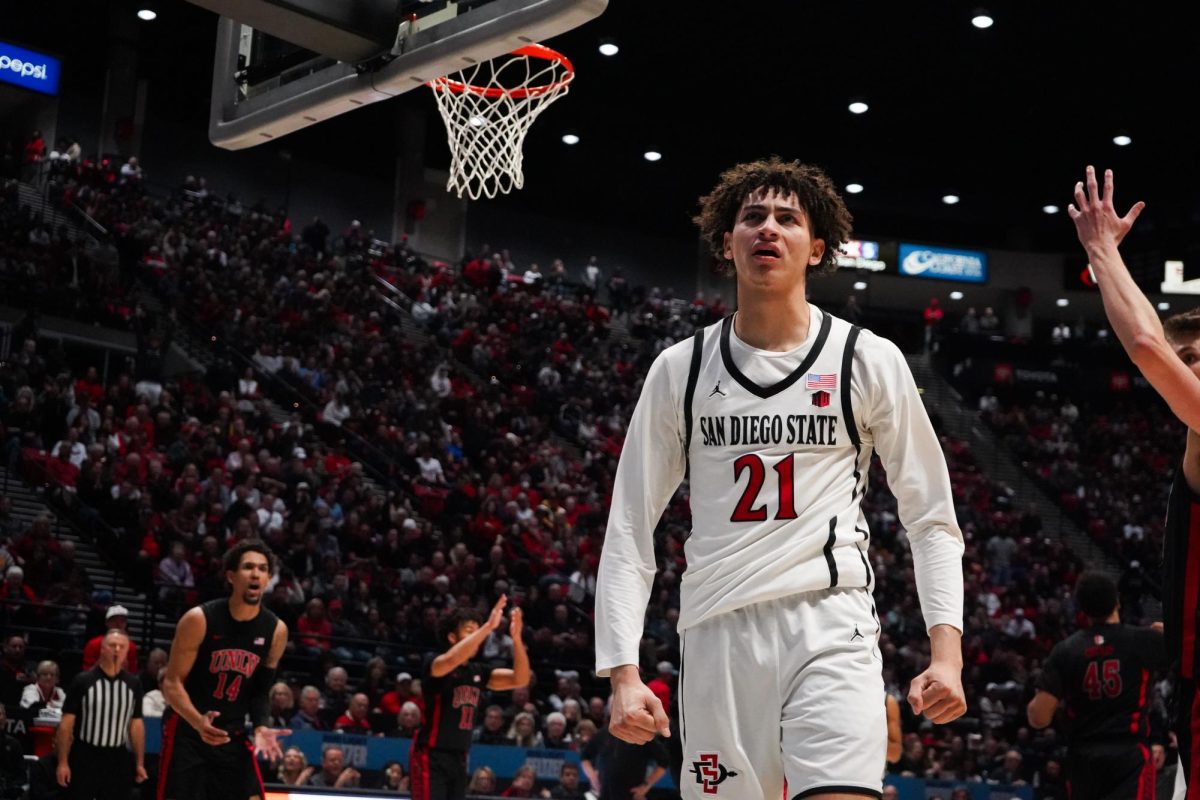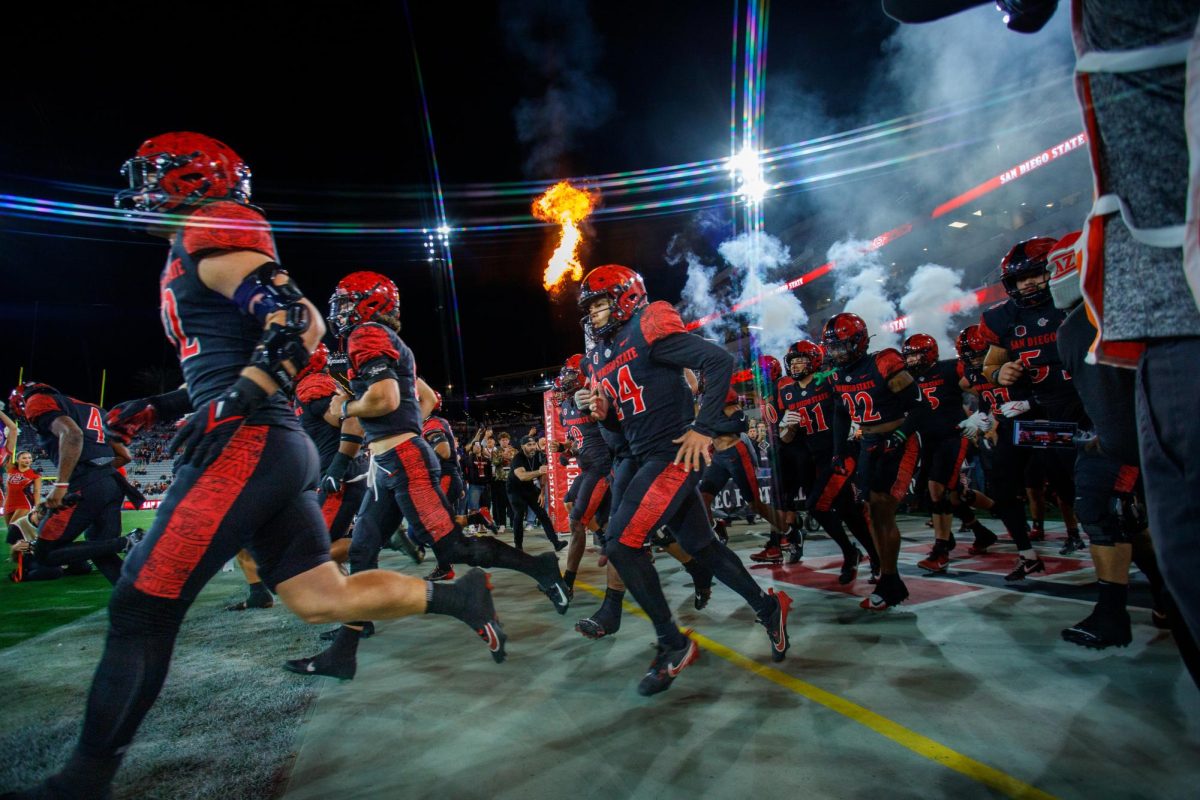At 6:30 p.m. on Saturday, Oct. 10, San Diego State’s Symphony Orchestra and Wind Symphony performed in Imperial Beach as the sun began to set. A crowd of families sat together on blankets and foldout chairs in front of a white tent to watch the orchestra perform.
The theme of the concert was “victory.” Thus, professor and conductor Michael Gerdes began the show with the first movement of Ludwig van Beethoven’s “Symphony No. 5,” which was nicknamed “The Victory Symphony.” The piece began with short, short, short, long notes, which is Morse code for the letter V, the ultimate symbol for victory.
The second piece of the night was “Yankee Variant Doodles” by SDSU’s own professor Brent Dutton. He wrote the piece as a gift to America after becoming an American citizen five years ago.
“It’s a happy little piece,” Dutton said. “(The orchestra) plays it well and they seem to have fun doing it.”
The tongue-in-cheek play on “Yankee Doodle Dandy” brought a feeling of patriotism to the crowd. One audience member yelled “America” during the performance.
The third piece was “Lincoln Portrait” by Aaron Copeland. The entire essence of the piece was not to portray Abraham Lincoln, but to illustrate his words.
Professor Adrian Alita narrated the piece.
“‘Fellow citizens, we cannot escape history,’ that is what he said,” Alita said. “That is what Abraham Lincoln said.”
The orchestra grew louder, and the crowd sat transfixed. Alita’s moving narration of Lincoln’s words accompanied the music beautifully. The orchestra ended powerfully to illustrate the intensity of Abraham Lincoln’s victorious legacy.
As the sun almost fully set, the orchestra ended its part of the concert with “Rainbow Body” by Christopher Theofanidis.
The piece was written around the Eastern idea of the “rainbow body,” an enlightened being whose corpse doesn’t decay after death but instead becomes absorbed into the energy of the universe.
“I feel like that’s the ultimate kind of victory,” Gerdes said. “It’s the end of your life and, boom, you become part of the universe.”
The symphony orchestra mastered these particularly difficult pieces for the Imperial Beach community. Gerdes said that no other undergraduate orchestra in San Diego could have played these pieces as flawlessly as the SDSU orchestra.
The Wind Symphony played the second part of the concert. The theme of its section was a collection of “Folk Songs and Fantasies from the Around the World.”
Professor and conductor Shannon Kitelinger opened the concert with Clifton Williams’ “Symphonic Dance No. 3 Fiesta.” The joyous tune contrasted with the more serious songs played by the orchestra.
The next song was “La Fiesta Mexicana” by H. Owen Reed. Audience members softly swayed to the song’s beginning bells, meant to represent church bells.
Before the wind symphony played “Hands Across the Sea March” by John Philip Sousa, Kitelinger dedicated the song to Imperial Beach. He described the piece as a partnership between the Imperial Beach SDSU music communities.
The symphony continued the theme of folk songs by playing the “English Folk Song Suite” by Ralph Vaughan Williams.
As the concert was at the beach, the symphony also cleverly played the piece “Manhattan Beach March” by John Phillip Sousa. The soft and loud parts of the song represented the waves of an ocean. A calming mood fell upon the audience toward the end of the song due to the notes reminiscent of receding waves.
The wind symphony tied the concert back to the symphony orchestra’s homage to the U.S. by ending the concert with “America the Beautiful.”
[envira-gallery id=”70232″]




